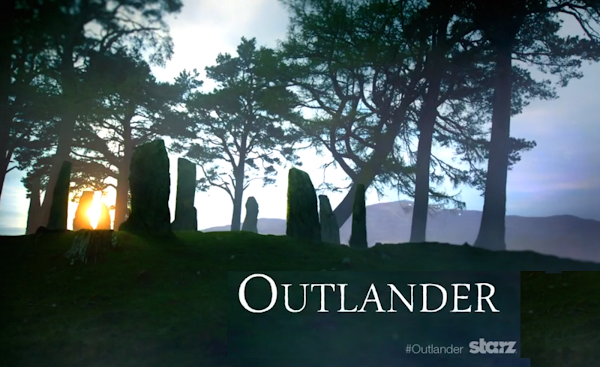Graphic novels
Novel to Graphic Novel: Turning Popular Prose into Comics by Ada Price, Publisher's Weekly, April 5, 2010
I liked the discussion in this article of whether to do a straight adaptation or a story set in the universe of the existing novel. (Even if the author of this particular article can't spell Diana's last name correctly. <sigh>) Betsy Mitchell, editor of THE EXILE, had this to say:
"[W]e've seen, by comparing print runs, that readers get much more excited about original stories than they do about [literal] adaptations.”
I wonder if that's true in this case? Would you be as enthusiastic about THE EXILE if it was simply a straight re-telling of OUTLANDER in graphic-novel form? (I don't think I would, personally. I love the idea that there will be new aspects to this story that we have never seen before!)
Drawing Power, by Bob Thompson, The Washington Post, August 24, 2008
This is an in-depth look at the history and evolution of graphic novels, including the way they are marketed. I like the fact that the author approaches the subject from the point of view of someone with a "personal bias toward prose", like so many of Diana's fans.
As best I can tell, what elevates these very different [graphic novels] are the same things that work in good, first-person prose: sharp-eyed observation, strong storytelling and a narrator who functions as the reader's guide. What seems different is the literal immediacy of the graphic versions. Within seconds, they can pull you into strange worlds.And I am very much looking forward to seeing that!
Words & Pictures: A Reader's Guide to Reading Graphic Novels by Rick Kleffel (December 31, 2004)
This is another article from someone who started out as a skeptic, and became a fan of graphic novels.
The reading experiences offered by a typeset novel -- even if it's illustrated -- and a graphic novel -- even if it's laden with words -- are quite different. When you are immersed in a typeset novel, you as a reader are creating a sort of movie experience in your mind. Some writers create a more cinematic experience and others a more abstract experience. As you read, the words flow from the page at a rate you the reader have some control over, though often not as much as you’d like. Some books can't be read fast enough, while others a reader will slow down to savor, page by page, paragraph by paragraph, sentence by sentence, word by word.By contrast, in a graphic novel:
[As] I pick up a graphic novel to read, I'd just speed through the words and glance at the pictures, applying the same reading sensibility to the graphic novel that I did to the typeset novel. That style of reading renders the graphic novel into an annoyingly vapid and underwhelming reading experience. The pictures then lack the fullness of illustrations and the words lack the richness of a novel. The experience won’t gel correctly if you read graphic novels like novels.I think that's a very important point, and something we should probably all keep in mind as we read THE EXILE.
It took me a while to learn to slow down, a while longer to pace the panels, so that I could enjoy the visual progression of the story as well as the text-based plot. In both Pekar's stories and Vess', the visual elements enabled the storytellers to extend the implications of the story, to provide a level of depth that text alone cannot provide.This issue of how to approach the reading of a graphic novel, as opposed to one of Diana Gabaldon's usual books, has concerned me for some time. Here is a post of mine on Compuserve from September, 2008:
I think I'm beginning to see how to approach this, as a reader who appreciates the depth and complexity and subtleties in your usual writing (and as someone who worries that very little of that will come through in the GN, due to the nature of the format).Diana's response was reassuring:
I'm beginning to see that the depth is still there, to some extent at least, but in order to see it, we may have to look beyond the words on the page, assessing the characters' motivations and viewing their actions based not only on what's in this particular story, but also on what we already know of the characters' personal history, temperament, and so on, and considering what implications the events of this story may have for the overall storyline of the main series. In other words, it won't be strictly a matter of taking the story at face value, but rather -- just as with everything else you've written -- interpreting what's going on in the GN in light of what we already know (and maybe also vice versa -- because the GN may well shake some of our assumptions about things we thought we already understood in OUTLANDER).
[Yes], that's right; the depth is still there. That depends on the characters, and _they_ haven't changed. We're just interpreting them via a different medium.So, here we are, with three days to go until THE EXILE's release, and I'm still somewhat ambivalent about the whole thing. Willing to approach it with an open mind, certainly -- the artwork I've seen so far is just gorgeous, and I'm very much looking forward to the new story! -- but at the same time, I'm still not sure whether this book is going to live up to all the hype. I suppose we can't know that until it's published and we see what the reaction is among Diana's fans, and how well it sells.
I will, of course, post my impressions here just as soon as I've had a chance to read the book for myself. <g> (For those of you who are wondering, no, I did NOT get an early copy of THE EXILE, much as I would have loved to. I'll be getting it on the 21st along with many of you.)








I picked up a couple of GNs in anticipation of Exile, since this is a genre that's new for me. The approach does need to be different. It's a different medium. Just as audiobooks force me to listen to the words at the reader's pace and often let me pick up on new things, I think that the graphics will enhance Diana's somewhat uncharacteristic ;-) brevity and help bring the scene to life. I'm looking forward to the new release.
Thanks for posting the interesting perspectives on graphic novels!
Jay - I think it will take a little time for people to get used to this new format. You're right about audiobooks forcing you to slow down! It will be really interesting to see everyone's reactions. Can't wait!
Karen